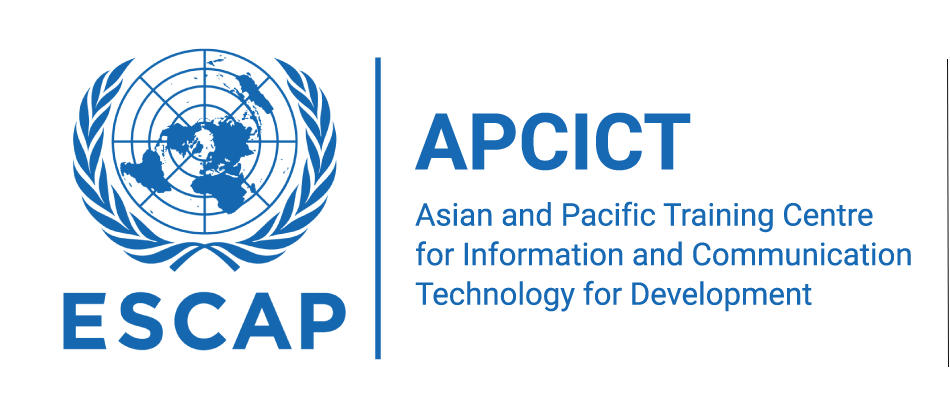This month APCICT will be organizing a Project Inception Workshop in Seoul to plan the implementation of an 18-month project entitled, “Improving Public Services through Information and Communication Technology (ICT).” The Centre will also showcase its work programme and achievements at the iSeeT@theClimateChangeKiosk at COP 15 in Copenhagen.
APCICT Collaborates with ADB in Organizing a Project Inception Workshop on Improving Public Service through ICT (7-11 December, Seoul)
The workshop brings key stakeholders together to discuss and agree on an implementation plan for an 18-month project entitled, “Improving Public Services through Information and Communication Technology (ICT).” This project aims to improve the contribution of ICT in national and sector development by enhancing the capacity of the governments of Mongolia, Philippines, and Viet Nam.
Partners in this project include the Asian and Pacific Training Centre for Information and Communication Technology for Development, a regional institute of ESCAP (APCICT-ESCAP), the Asian Development Bank (ADB), the Korean Ministry of Public Administration and Security (MOPAS), the National Information Society Agency (NIA) of the Republic of Korea, and national government organizations in Mongolia, the Philippines and Viet Nam.
The workshop begins with a two-day e-government training of trainers based on one of the modules of APCICT’s flagship programme – the “Academy of ICT Essentials for Government Leaders” (Academy). The original author of the Academy module on “e-Government Applications,” Dr. Nag Yeon Lee, will deliver the training. In addition to setting the framework for developing the project implementation plan, this training of trainers is intended for a wider goal – to expand the pool of Academy trainers in the region that are capable of localizing and using the Academy resources, and delivering effective national Academy workshops.
The remaining three days of the workshop will be dedicated to a series of group discussions to: i) review the current e-government status and best practices; ii) identify the gaps and discuss issues; iii) review and discuss different methodologies and approaches to bridge gaps and address issues; and iv) refine project outputs and agree on the detailed implementation plan.
The implementing agencies for the respective country components will be the Information Communications Technology and Post Authority (ICTPA) in Mongolia, the Commission on Information and Communications Technology (CICT) in the Philippines, and the Ministry of Information and Communications (MIC) in Viet Nam.
The project will improve the knowledge, skills and awareness of policymakers, line ministries, project managers, and other stakeholders in the three targeted countries to formulate, direct and/or implement ICT policies and programmes by applying appropriate ICT maturity assessment, participating in the learning programmes, and developing ICT road map and strategies.
APCICT Participates in iSeeT@theClimateChangeKiosk at COP15 (7-18 December 2009, Copenhagen)
iSeeT@theClimateChangeKiosk is an exhibition of the secretariat of the United Nations Framework Convention on Climate Change at the Fifteenth Session of the Conference of the Parties (COP 15). Using ICT as the main theme, the Kiosk will present practical examples of existing and upcoming technologies and practices along with related products and services showing how ICT is and can be used to combat climate change.
In one of the exhibition’s four themes on ‘capacity building and technology transfer to support developing countries, including Internet connectivity and training’, APCICT will showcase its flagship progamme the “Academy of ICT Essentials for Government Leaders” (Academy) in strengthening ICT capacities for sustainable socio-economic development.
At the exhibition, APCICT will demonstrate the participatory and inclusive process it took to design, develop and then roll out the Academy with strategic partners; and highlight some of the accomplishments that have contributed to boosting capacities of policymakers in using ICTs effectively for development.
Currently, the Academy has eight modules that focus on the linkage between ICT and the Millennium Development Goals; ICT for development policy, process and governance; e-government applications; ICT trends; Internet governance; network and information security and privacy; ICT project management; and options for funding. To meet changing needs, the modules are continually being updated, and additional modules are being planned, including a ninth module on ICT for Disaster Risk Reduction and a tenth one on Climate Change and ICT.


